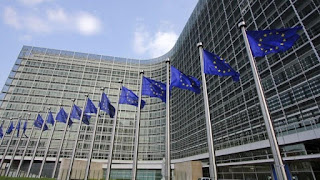When you think of the Netherlands, you may not necessarily think of
them as a nation of champion ice skaters, but that they certainly are.
The Dutch are a bunch of ice skating fanatics and they are genuinely
awesome at it!
It’s no wonder that as soon as it starts to freeze, you’ll hear Dutch people talking about “taking their skates out of the fat” and rumours of an Elfstedentocht. But, what is the Elfstedentocht actually?
The Elfstedentocht is, literally translated, the eleven cities tour. It is a 199-kilometre ice skating, and speed skating tour through eleven historical Frisian towns. The tour starts in Leeuwarden and journeys through the towns of Sneek, IJlst, Sloten, Stavoren, Hindeloopen, Workum, Bolsward, Harlingen, Franeker and Dokkum, before finishing again in Leeuwarden.
The route has participants skating on frozen lakes, canals and rivers. In order for the event to be held, the ice must be at least 15 cm thick- something that doesn’t happen very often.
Should the ice be satisfactory, a tour is announced and starts within 48 hours. The last Elfstedentocht was held in 1997 on January 4. This was the 15th ever Elfstedentocht, the first was held in 1909 on January 2.
The last two editions, in 1997 and 1986, were skated in temperatures of -3,6C and -6,9C respectively. It’s not something you just skate either; you first have to be a member of the Association of the Eleven Frisian Towns and pay for a starting permit and bib.
In the run-up to an Elfstedentocht, after a few days of freezing temperatures, speculations can be heard about whether or not the tour will be held, and the longer the freezing temperatures stay, the more excited people become about the possibility of the next edition. The Dutch even have the saying, “When it starts to freeze, the Frisians thaw”.
No one is sure when the next Elfstedentocht will be held, but one thing is for sure, if it starts freezing outside, you are sure to hear rumours of this legendary race.
Read more: Ice skating is a big deal in the Netherlands
It’s no wonder that as soon as it starts to freeze, you’ll hear Dutch people talking about “taking their skates out of the fat” and rumours of an Elfstedentocht. But, what is the Elfstedentocht actually?
The Elfstedentocht is, literally translated, the eleven cities tour. It is a 199-kilometre ice skating, and speed skating tour through eleven historical Frisian towns. The tour starts in Leeuwarden and journeys through the towns of Sneek, IJlst, Sloten, Stavoren, Hindeloopen, Workum, Bolsward, Harlingen, Franeker and Dokkum, before finishing again in Leeuwarden.
The route has participants skating on frozen lakes, canals and rivers. In order for the event to be held, the ice must be at least 15 cm thick- something that doesn’t happen very often.
Should the ice be satisfactory, a tour is announced and starts within 48 hours. The last Elfstedentocht was held in 1997 on January 4. This was the 15th ever Elfstedentocht, the first was held in 1909 on January 2.
The last two editions, in 1997 and 1986, were skated in temperatures of -3,6C and -6,9C respectively. It’s not something you just skate either; you first have to be a member of the Association of the Eleven Frisian Towns and pay for a starting permit and bib.
In the run-up to an Elfstedentocht, after a few days of freezing temperatures, speculations can be heard about whether or not the tour will be held, and the longer the freezing temperatures stay, the more excited people become about the possibility of the next edition. The Dutch even have the saying, “When it starts to freeze, the Frisians thaw”.
No one is sure when the next Elfstedentocht will be held, but one thing is for sure, if it starts freezing outside, you are sure to hear rumours of this legendary race.
Read more: Ice skating is a big deal in the Netherlands


